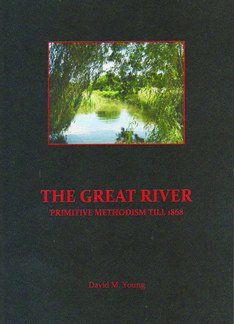This book describes the origins and development of Primitive Methodism in North Hampshire. As such, it is an encouragement to perseverance in evangelistic work today.
The book is not a general history of the denomination. Instead, it offers a carefully researched profile of pioneering evangelism — albeit Arminian — from the late 1820s up to 1868.
North Hampshire was barely touched by the industrial revolution at this time. Employment was mainly agrarian. Farmers were tenants of local landowners and their workers lived in tied cottages. It was to such people that Primitive Methodism reached out.
Young provides a sobering insight into the dire social conditions. The land-owning gentry, jealous of their privileges and mindful of recent turmoil in France, regarded all popular movements as a revolutionary threat. The workforce was seen as a resource to be exploited and kept in their place. The Anglican clergy, allied to the squires, resented the rivalry of Dissent and did their utmost to suppress it.
So, the Primitive Methodist pioneers, like John Ride and Thomas Russell, faced an uphill struggle against ruthless and powerful men. Landlords would not hesitate to sack men and evict whole families for giving hospitality to such preachers or allowing meetings in their homes. The history of the movement is littered with accounts of such persecution, met with heroic, evangelistic persistence.
Numbers quoted do not suggest revival, but rather dogged perseverance. People were converted and congregations grew slowly, many village chapels only mustering modest numbers.
Chapel buildings were essential to give permanence to the work, but that was a problem. Purchase of land was obstructed and farm workers only paid a pittance. Even if a plot was secured, a fledgling church could be saddled with crippling debt. Some of the early chapels were, of necessity, primitive in more ways than one!
The denomination was not without its weaknesses. Its leaders had a rather dictatorial view of church discipline, laying down rules, for example, on plainness of dress and hairstyle. Energies were also diverted from the gospel into peripheral issues, while anxiety over chapel debts became a preoccupation. Nevertheless, the end product of 40 years’ hard work was a comprehensive network of gospel-preaching churches in villages and towns across the region.
Beside the sheer enjoyment of reading the history of God’s work, the book reminds us to persevere in the gospel. It also warns against diversions from central matters. Few of us have the headache of raising money and buying land to build new chapels. Many have the costly problem of maintaining old ones. Yet God is faithful.
The really important thing about the Primitive Methodists was their success in bringing the gospel of Christ to the poorest of the under-class. That alone would be reason enough to read this book.
Stephen Ford
Snailbeach, Shropshire


















